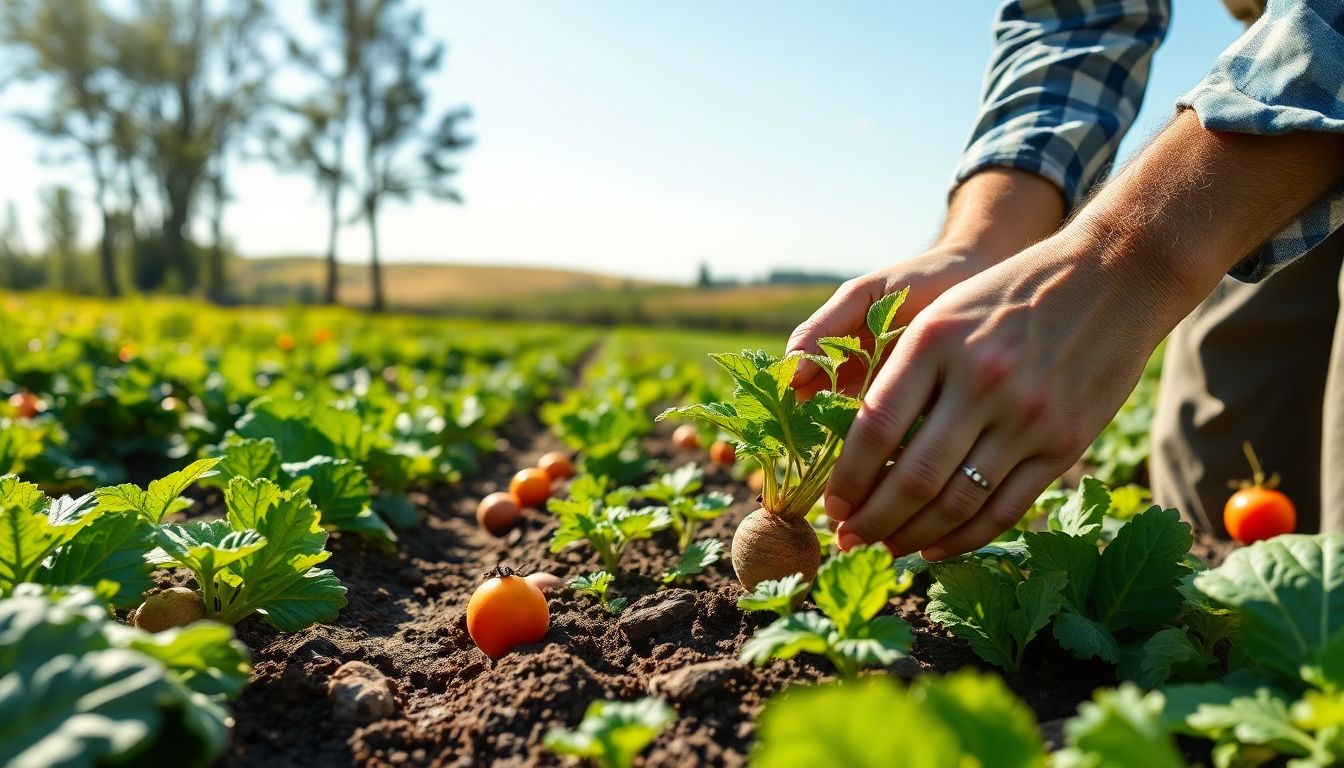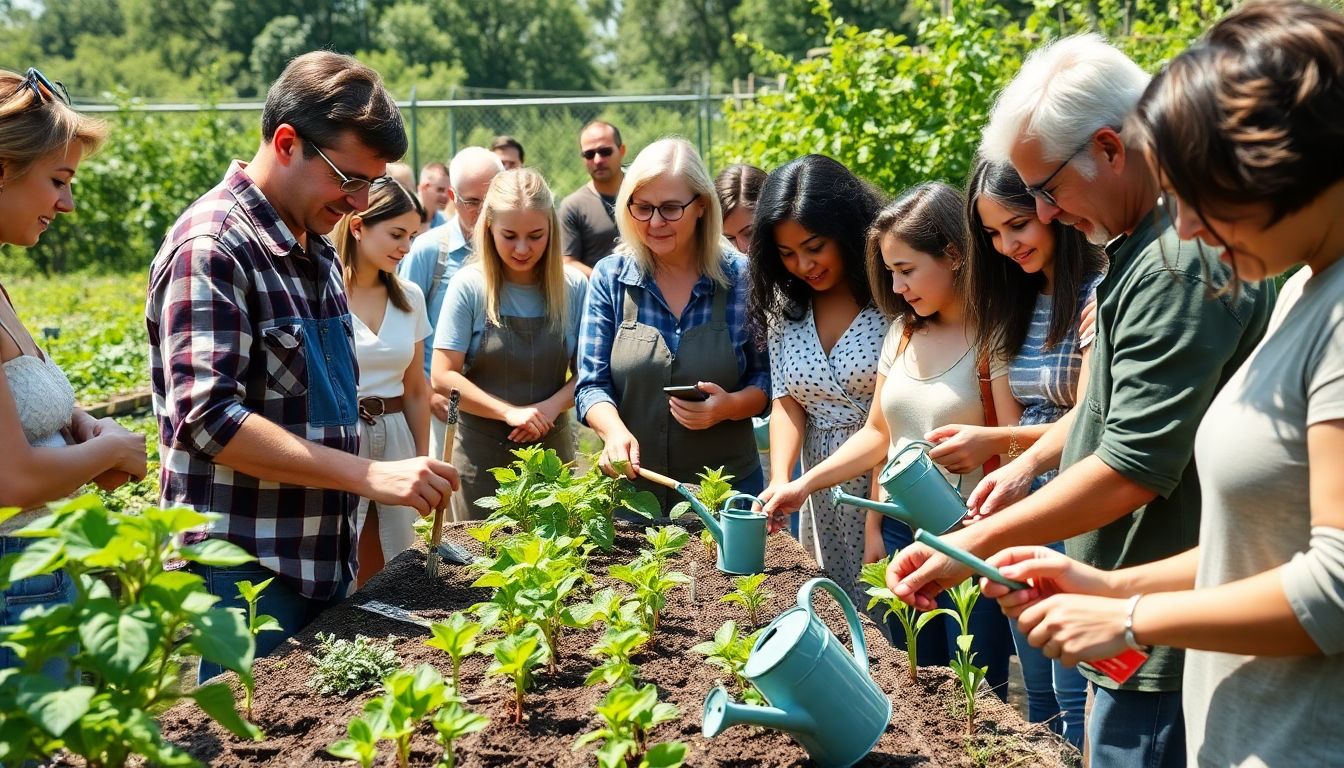Do you want to grow delicious and nutritious food in your backyard? The weather in Michigan may not always cooperate, but an organic garden is very possible with the right approach. More and more people want to know where their food comes from and how it grows. The purpose of this article is to offer practical advice for organic gardening in Michigan. Get ready to make your garden tick, naturally!
Understanding the Organic Gardening Situation in Michigan
Organic gardening in Michigan has wonderful opportunities and challenges. Knowing the climate and soil setup gives you big success. Let us look at what is really special about growing things in the Great Lakes State.
Weather and Climatic Factors for Consideration for Michigan Gardens
Weather tends to work its clowning on Michiganders! We have different hardiness zones, which affect what plants can survive the winter. The growing season is shorter than in warmer states. Thus, one must remember frost dates for planting as much as possible. Another important detail is possible warmer or colder microclimates within your landscape. All of these factors contribute to how plants will thrive.
Soil Types and Amendments from Michigan
Michigan has all sorts of dirt. From some sandy silt soils, other clays, to good ol’ loam. Sandy soil drains fast, clay holds water, and loam is just a good mix of both! You’d want to test for your soil. You can then start adding organic materials, such as compost. Manure and leaf mold are also good. These things improve health to the soil.
Michigan-Specific Pest and Disease Hurdles
Bugs and diseases can give you one heck of a headache! Some common bugs that cause trouble in Michigan are squash bugs and aphids, while powdery mildew is an example of a common disease. Organic methods can successfully treat these problems. Setting other methods in motion, such as neem oil and companion planting, would keep your garden continuously healthy, without the use of any harmful chemicals.
Important Organic Gardening Concepts
A few crucial practices underpin the success of your garden. These techniques basically center on nurturing healthy soil and strong plants. To keep it simple, let’s run over composting, soil health, and watering.
Composting and Vermicomposting
Composting is just recycling for your garden. It transforms kitchen scraps and garden refuse into a nutrient-giving fertilizer. Start a compost pile using leaves, vegetable scraps, and old coffee grounds. Vermicomposting literally means using worms to eat the waste. It is appropriate for limited spaces. Both methods give a boost to your garden.
Soil Health and Fertility
Healthy soil makes healthy plants. Soil testing indicates what your soil lacks. The soil cover crops like clover work to protect the soil from erosion in an off-season. The idea behind crop rotation is to plant different things in different years, thus interrupting pest life cycles while concurrently keeping up soil fertility.
Watering And Irrigation Methodologies
Water management saves water and helps plants grow. Harvesting rainwater is one good way of collecting water. Drip irrigation supplies water directly to the roots. Water deeply but less frequently for good root development.
Choose the Right Plant for Your Garden in Michigan
Selecting the right plants is favorable to make a good garden. Native types, disease resistance, and good planning help a lot. Let us now get into the wonderful options for Michigan gardens.
Native Plants in Michigan for Organic Gardens
Plants that occur naturally in the wild are very suitable to the climate in Michigan. They require less water and fertilizer, plus they can attract beneficial insects as well. For example, consider milkweed for monarchs, or black-eyed Susans for colorful additions.
Selecting Types Which Resist Diseases
Some plants are bred for resistance against some common diseases. Select disease-resistant types such as tomatoes, cucumbers, etc. Knowing these varieties would mean much less trouble and lesser treatments to treat them.
Crop Planning for Year-Round Harvests
Plan your garden so that you can feed yourself throughout the seasons. Plant your cool season crops like spinach early, then follow them up with some warm season plants such as tomatoes. You can even put them into cold frames for extended season growing.
Organic Pest and Disease Management
Pests and diseases need not be managed with chemicals, as nature has equipped us with ways of keeping the garden natural. Let’s look at ways of managing problems naturally.
Identifying Common Pests and Diseases
In fact, one should first know what is harming their plants. Most commonly found pests consist of aphids, cabbage worms, etc. In addition to these, there are certain signs indicating diseases such as leaf spots. The early detection makes a huge difference.
Natural Pest Control Methods
Pests are consumed by ladybugs and many other beneficial insects. Companion planting is planting specific plants together to repel certain bugs. Use neem oil or similar as organic insecticides. These options are effective in protecting the environment as well.
Prevention and Treatment of Diseases
Good practices prevent many diseases. Choose resistant varieties of plants. Provide enough spacing for plants so that air can travel easily. Some diseases will be treated by organic fungicides. Healthy plants are less prone to problems.
Finding Organic Gardening Training and Resources in Michigan
Are you an organic gardener or want to become one? There is a lot to offer Michigan, including experts, community gardens, and materials on the network for that all-important learning.
Local Extension Offices and Master Gardener Programs
Tons of information come from Michigan State University Extension. They conduct workshops and offer advice. Master Gardeners are validated volunteers who can field and answer most questions. All these resources are a great help to Michigan gardeners.
Community Gardens and Workshops
Community gardens are great practical learning and sharing environments. Most have workshops that focus on organic gardening; it’s just a nice way to meet other gardeners – possibly learning from their experience as well.
Online Resources and Communities
There are tons of websites, blogs, and forums that are based on organic gardening. Go searching for more Michigan specific info for that. There’s advice and plenty of people to connect with over the Internet.
Conclusion
Organic gardening in Michigan is doable. Knowing your climate and soil is so important. Use organic methods to grow healthy plants. Local resources can help you learn even more. Start your organic gardening adventure today. You’ll have delicious food and a healthier environment!



